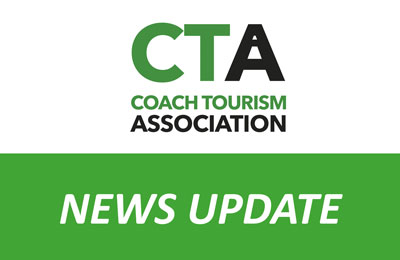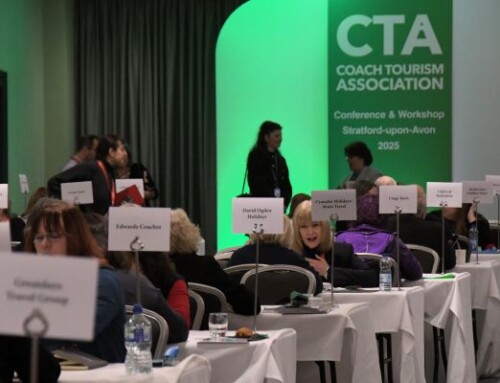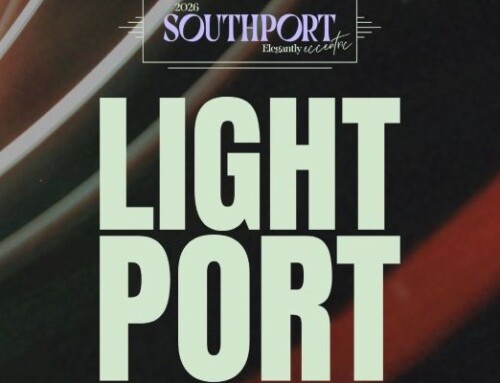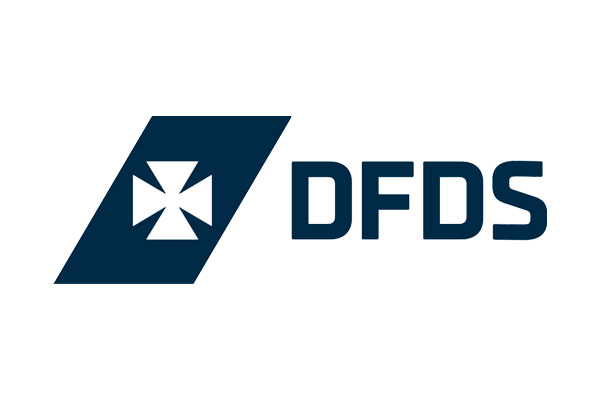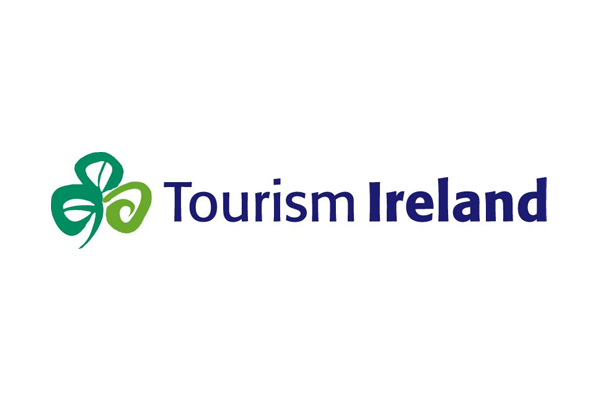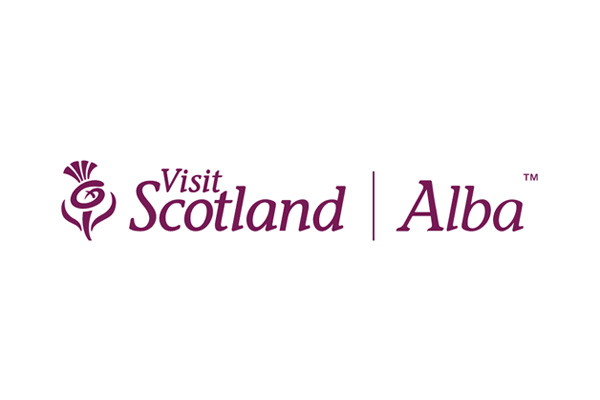COVID-19 Updates – week commencing 30/3/20
Here is a rolling update of developments from the government and various links to interpretation and guidance. Apologies for the length of the updates, but since this is critical information, we have not edited the submissions from other bodies and have included them in full.
Go to date:
30 March 2020 …
Advice from Elman Wall
Audit, accountancy and tax planning specialists Ellman Wall has provided the following summaries of various government support schemes and has also kindly allowed us to supply the link to two short explanatory videos.
Video 1 https://www.youtube.com/watch?v=PUBbxlm9Etw&feature=youtu.be
Video 2 https://www.youtube.com/watch?v=qLuvA-NwPus&feature=emb_title
Help for the Self Employed
In an attempt to convince the self-employed that they were not being forgotten, the Chancellor has announced a new support package designed to cover around 95% of the self-employed.
Details are now awaited but we have the outline of how this business sector will benefit. Eligibility will be conditional.
• Firstly, this is designed to be specifically targeted for those who are reliant on self-employment, as opposed simply being for anyone who is self-employed. Accordingly it applies where the majority of income is from self-employment. It remains however to be seen how this works. For example take someone who for a non-Covid-19 genuine reason their last reported profit from self-employment was low, or even generated a loss. That may mean the majority of income is not from self-employment.
• Secondly, a tax return for the year ended 5 April 2019 needs to have been filed. For those who have not yet filed the 2018/19 tax return a 4-week extension from yesterday is now granted. This is to ensure only those with a genuine self-employment history can participate.
• Thirdly, it will be available to anyone making a trading profit of up to £50k. This has a possible twist. The 2018/19 tax year encompasses a range of trading year ends – in theory everything from 6 April 2018 to 5 April 2019. So potentially someone who last drew up accounts almost two years ago could be prejudiced by having a profit of £51k compared to what may have happened in the year to April 2019 or indeed now.
This Self-Employed Income Support Scheme will pay a grant of 80% of average monthly profits over the last three years, up to £2,500 per month.
So, for someone who has average annual profits of £50k, or £4,167 per month, they will receive £2,500. This is the same as someone who has average annual profits of £37,500, so it’s not entirely clear why the £50k cap. Except that the average earnings of those above £50k are stated to be £200k
The scheme will run for an initial three months. In contrast to the treatment of furloughed employees, to the extent that it remains possible, which is probably unlikely, the grant can be claimed as well as continuing to do any business.
This grant however comes with a few stings and a warning.
• Firstly, the grant will be taxable. In theory this is designed to replace lost profits, so perhaps this stance is understandable. At least there is no deduction at source, and under normal self-assessment procedures, any tax on this is only likely to be paid in January 2021 or July 2021 at the earliest.
• Secondly, due to the complexity of running such a scheme, and ensuring any exposure to abuse is minimised, access to the grant is unlikely to be available prior to the beginning of June. HMRC will contact relevant individuals and will make payments directly following on from that. Nonetheless June seems a long, long time away.
• Thirdly, The Chancellor made a clear suggestion that National Insurance is likely to rise for the self-employed in the future, as the inconsistencies in status between employees and the self-employed is looked at and sought to equalise.
So some good news for the self-employed but the long wait until June is worrying. In the meantime, applications for for Universal Credit can be made with a guarantee that it should not take the usual 5 weeks for money to come through. The advance payment system should allow funds to be paid within ‘days’.
Coronavirus Job Retention Scheme
• There are still many more questions than answers at this stage.
• However, yesterday Government published further guidance on who can be furloughed, how and when. READ MORE HERE – https://www.gov.uk/guidance/claim-for-wage-costs-through-the-coronavirus-job-retention-scheme
• Please note that payments under this scheme will be taxable.
HMRC Time to Pay Helpline
• We are seeing HMRC automatically upon request deferring PAYE payment for 3 months.
• HMRC have announced a new phone number of 0800 024 1222 which should now be used
VAT Deferral
• Whilst this is automatic, Government are advising taxpayers to cancel your direct debit .
• VAT returns still need to be submitted in the normal way. If you are in a repayment situation, we recommend you submit your VAT return as soon as you can after your VAT quarter end.
• To reread our original analysis, click HERE https://elmanwall.blog/2020/03/23/update-on-the-deferral-of-this-quarters-vat-payments/
Rates
• The 100% discount for 20/21 year for certain public facing businesses ( including travel agents, bars and restaurants) is in place and being activated by Local Authorities. Expanded guidance on qualifying business types has been issued and can be found HERE
• There is no cap on rateable value, so applies to all business sizes.
• The Retail and Hospitality Grant Scheme for smaller businesses (10k where rateable value is under 15k, 25k where rateable value is between 15k and 51k; nothing for rateable values in excess of 51k) is automatically run by Local Authorities. We are hearing that some Local Authorities have begun to contact relevant companies. There may be a lack of consistency and speed of delivery across different Local Authorities.
Coronavirus Business Interruption Loan Scheme (CBILS)
• This is up and running, but we are hearing mostly negative stories at the moment. Government needs to direct the Banks to make available loans to Companies. We are seeing 100% personal guarantees being required, which in a situation where we don’t know how long the Coronavirus restrictions will last for and what a recovery could look like, no reasonable owner should give. This requirement needs to be removed as soon as possible.
• Hopefully, we will see some standard approaches emerging from the Banks…at the moment, the major banks are applying the criteria differently, and that next week these emergency loans will become easier to access.
• It also appears that most banks are “not open” for new business at this time.
Package Travel Regulations
• Despite being expected much earlier this week, no announcement has yet been made by Government regarding amending the Regulations around the requirement to repay a 100% refund in cash within 14 days of cancellation. We await this announcement as does the entire Travel Industry
VAT Deferral
This applies to all UK businesses. It applies automatically so no HMRC contact is needed to access the deferral.
Normal VAT payments due between now and 30 June 2020 are deferred until 5 April 2021. Two points however.
• Firstly, VAT returns must still be completed and submitted to HMRC within the normal deadlines.
• Secondly, this is only a deferral mechanism. Any VAT so deferred will still need to be paid to HMRC by 5 April 2021, although there is no requirement for this to be paid before that date, clearly in terms of cash flow management it would be sensible to try and repay any deferred amounts by installments as opposed to leaving it all to 5 April 2021.
Our more detailed VAT analysis can be found HERE https://elmanwall.blog/2020/03/23/update-on-the-deferral-of-this-quarters-vat-payments/
Income Tax Deferral
• This applies to all self-employed individuals. It applies automatically so no HMRC contact is needed to access the deferral.
• Normal income tax payments falling due as at 31 July 2020 are deferred until 31 January 2021.
• Whilst as yet there has been no specific clarification, the current working presumption is that this also applies to partners of partnerships, albeit this is likely only be apply to trading partnerships and not investment partnerships.
Coronavirus Job Retention Scheme
• This will be applicable to all UK employers. Under the scheme such employers will be able to access support to continue paying part of their employees’ salary in relation to those employees that otherwise would have been laid off.
• HMRC will reimburse 80% of ‘furloughed workers’ wage costs, subject to a cap of £2.5k per worker per month. This will be for an initial period of 3 months.
• HMRC require a new administrative system to facilitate payments to employers, as opposed to the other way round, and so full access details are required.
• However business will need to take two steps:
1. Firstly, designate affected employees as ‘furloughed workers’. These employees will then need to be notified. HR input may be required for this.
2. Secondly, information will need to be submitted to HMRC through a new online portal, currently being developed.
• There will need to be further announcements from Government as to how this will operate in practice, as currently, there are many unanswered questions.
Support for retail, hospitality and leisure businesses
There are two separate measures potentially available to business within these sectors.
• Firstly, there will be a business rates holiday, currently limited to England, for the 2020/21 rateable years. Whilst there is no rateable value limit, the list of property types that will benefit from this are those occupied wholly or mainly for: Shops, restaurants, cafes, pubs, cinemas, live music venues, assembly and leisure, hotels, guest and boarding premises and self-catering accommodation.
• The test is use based as opposed to occupation, and so some clarification may still be needed.
• It remains to be confirmed whether relevant businesses having other properties, e.g. offices, will also be covered. Given no initial action need be taken by businesses, instead local authorities simply amending rate bills as appropriate this should be monitored on a business by business basis and where revised rating bills are not received this should then be taken up with the local authority.
• Further details can be found HERE https://www.gov.uk/government/publications/business-rates-retail-discount-guidance
• The second measure is to provide cash grants to this sector, under the Retail and Hospitality Grant Scheme. This will provide grants of up to £10k for businesses with a rateable value under £15k and grants up to £25k for businesses with a rateable value between £15k and £51k.
• Again no immediate action is required. Relevant local authorities will be writing directly to those businesses considered to be eligible. Final details are currently being drawn up, so it may be up to individual businesses to challenge local authorities if they are not otherwise contacted.
Coronavirus Business Interruption Loan Scheme (CBILS)
• Although much heralded, CBILS is lagging behind in being implemented. Full details are still awaited, although the indications are this will be up and running this week commencing 23 March.
• Operated by the British Business Bank (BBB) but delivered through all of the major banks amongst 40 lenders, this is designed to support SME businesses by providing bank lending and overdrafts.
• The Government will provide lenders with a guarantee of 80% of each loan up to £5m, this guarantee having no additional charge. The term of the loans will be up to 6 years.
• The initial eligibility criteria is that the business is UK based and turnover is no more than £45m per year. Subject to a few exceptions most businesses should therefore qualify, Further details are set out on the BBB website
• In essence the first 12 months will be interest free, as the Government will be covering such interest by making Business Interruption Payments.
• Businesses who can’t demonstrate that the reason they need the funding is solely due to Coronavirus may not qualify.
• For businesses wanting to consider this, you should approach your normal bank, not the BBB, as soon as possible so that given the imminent finalisation of the scheme funding can then be considered. There is a summary CBILS FAQ which may be found HERE
SSP relief package for SME
• New legislation is required for this measure which will allow SME businesses to reclaim SSP paid for sickness absence arising from COVID-19.
• This will refund cover of up to 2 weeks’ SSP per eligible employee. To meet the SME definition, a business must have had fewer than 250 employees as at 28 February 2020.
• Eligibility will commence from the day after relevant regulations come into force. As with the Job Retention Scheme, HMRC is working on appropriate procedures to facilitate the repayments. Further details will be announced in due course.
https://www.youtube.com/watch?v=PUBbxlm9Etw&feature=youtu.be
—————
The Tourism Alliance has provided the following update:
Changes to Insolvency and Company Rules
Over the weekend BEIS minister, Alok Sharma, announced that the Government would be introducing legislation to support businesses that would otherwise be operating illegally due to being technically insolvent. There will be a temporary suspension of “wrongful trading” rules which make it a criminal offence for a company to keep trading if they know the business is unable to repay its debts, with new rules allowing companies undergoing restructuring to continue to access supplies and raw materials. This will also remove the threat of Directors having personal liability for their business and will apply retrospectively from March 1.
He also announced that companies required to hold Annual General Meetings will be able to do so flexibly in a matter compatible with public health guidance such as holding the AGM online, or by phone using only proxy voting.
Guidance on Mental Health and Wellbeing
While everyone is working hard to deal with the business and employment impacts of Coronavirus, one of the overlooked issues of this is the impact on the mental health of business owners and employees. To help with this, the Government has produced guidance on how to protect people from the psychological impacts which is worth sending out to support your members. The key suggestions are:
◦ Consider how to connect with others
◦ Help and support others
◦ Talk about your worries
◦ Look after your physical wellbeing
◦ Look after your sleep
◦ Try to manage difficult feelings
◦ Manage your media and information intake
◦ Get the facts
◦ Think about your new daily routine
◦ Do things you enjoy
◦ Set goals
◦ Keep your mind active
◦ Take time to relax and focus on the present
◦ If you can, once a day get outside, or bring nature in
https://www.gov.uk/government/publications/covid-19-guidance-for-the-public-on-mental-health-and-wellbeing
Grant Fund Scheme
The Government has produced updated guidance on the Grant Fund Scheme which provides further detail on how this will operate.
This is the third version of the guidance to have been produced in the last two weeks which highlights both how quickly things are changing and the need to keep checking on updates of all the guidance produced to make sure you are operating from the most recent version.
—————
CPT has produced a number of recent Operational updates:
EXCURSIONS & DAY TRIPS CANCELLATIONS
We are aware that a large number of our members who operate day excursions are currently facing many demands for refunds for cancelled trips.
We have produced some wording that members may wish to use on their websites or in communications with customers.
TOURS AND HOLIDAYS CANCELLATIONS
For Tours and Holidays the Bonded Coach Holidays (BCH) team has been doing its best to keep members of that scheme up to date regards refund arrangements.
CPT has also been supporting calls for changes to the Package Travel Regulations to allow companies to issue credit notes instead of cash refunds, to make refunds dependent upon the receipt of refunds from suppliers and to remove the requirement for companies to issue cash refunds within 14 days.
We are expecting a Government announcement on this shortly, and will update members as soon as we are aware of the governments plans
TRADING STANDARDS GUIDANCE
CPT is in regular dialogue with Trading Standards and they have told us that they will not be able to deal with individual complaints from customers.
If the organiser is prevented from performing the contract because of unavoidable and extraordinary circumstances (the current position), they should notify the traveller of the alternative arrangements to ensure customers do not lose their money.
———————
31 March 2020 …
CPT operational updates:
Vehicle Off Road (VOR) – Reminders for Operators
Despite the ongoing COVID-19 pandemic members should still remember their commitment made to the Traffic Commissioner to maintain records of all maintenance undertaken, when they obtained their O licence
It is also very important that you maintain accurate and comprehensive records for your vehicles even when they are not being used and are VOR during the COVID-19 crisis, to ensure that no compliance issues occur or enforcement action taken when the situation returns to normal
When a vehicle is VOR you can miss an inspection from the previously agreed inspection cycle. However it is important that a missed inspection form is completed and placed in the vehicle record file to record this. An example of a missed inspection form can be found here
If the vehicle is VOR, but no planned inspections are missed, you should also make sure that a record of this is kept and placed in the vehicle file. An example of a VOR record sheet can be found here
Operators should also remember that their forward planning system will need to be updated in order to show any changes to planned maintenance
Senior Traffic Commissioner Guidance – Vehicle Off Road (VOR)
The senior traffic commissioner has made some time limited changes to his statutory guidance during the COVID-19 crisis
He has also issued advice to operators
For a situation where an operator is not using vehicles during this period the advice is:
Although it is always recommended that a pre-use inspection is carried out prior to putting vehicles that have been stood idle back into service, the traffic commissioners recognise that operators will want to start using vehicles as soon as possible and there may be delays in businesses starting again when there may not be enough slots available at maintainers to inspect vehicles
Therefore, for fleets that are unused during this period the following principles can apply:
• The PMI schedule is frozen or paused during the period that the vehicle is not used
• If the regular PMI period has been exceeded, the first walk-round check prior to use is to be performed by a technician and include a check of tyre pressures and a brake test with temperatures measured
• Vehicles over 12 years old and more than 50% or 4 weeks, whichever is greater, over their PMI cycle will receive a full preventative maintenance inspection before use
Driver CPC – temporary measures for expired qualifications
The Department for Transport is putting in place temporary exemptions to professional driver qualification requirements due to the COVID-19 pandemic
This follows discussions with CPT and the logistic industry trade bodies
The changes mean that drivers whose DQC expires in the period from 1 March 2020 to 30 September 2020 can continue driving even if they have not completed the necessary 35 hours periodic training
In addition military drivers who do not need a DCPC will be allowed to drive in non-military situations during this period
Drivers will not be subject to enforcement action by the Driver and Vehicle Standards Agency (DVSA) in respect of the DCPC regulations.
National police forces are also aware of this
Drivers should continue to carry their expired DQC
From 1st October 2020 drivers will no longer benefit from this exemption, and from that date must have completed their periodic training
Drivers who drive in the EU during this period will require a valid DQC
COVID 19 Support for Business
The Chancellor has set out a package of temporary and targeted measures to support businesses during the COVID-19 crisis
https://www.businesssupport.gov.uk/coronavirus-business-support/
Job Retention Scheme
The Coronavirus Job Retention Scheme is a temporary scheme open to all UK employers and will run for at least 3 months starting 1st March 2020
Employers can claim for 80% of furloughed employees’ usual monthly wage costs, up to £2,500 a month, plus the associated Employer National Insurance contributions and minimum automatic enrolment employer pension contributions on that wage.
Employers can make use the scheme anytime during this initial 3 month period.
Employees must have been on your PAYE payroll on 28 February 2020, and can be on any type of contract, including:
• full-time employees
• part-time employees
• employees on agency contracts
• employees on flexible or zero-hour contracts
The scheme also covers employees who were made redundant since 28 February 2020, but only if they are rehired by their employer.
To be eligible for the subsidy, when on furlough, an employee can not undertake work for or on behalf of the organisation. This includes providing services or generating revenue.
While on furlough, the employee’s wage will be subject to usual income tax and other deductions.
THE MINIMUM PERIOD AN EMPLOYEE CAN BE FURLOUGHED IS THREE WEEKS
https://www.gov.uk/guidance/claim-for-wage-costs-through-the-coronavirus-job-retention-scheme
Deferring VAT Payments
HMRC will allow businesses to defer Valued Added Tax (VAT) payments for 3 months
A UK VAT registered business with a VAT payment due between 20 March 2020 and 30 June 2020, has the option to:
• defer the payment until a later date
• pay the VAT due as normal
https://www.gov.uk/guidance/deferral-of-vat-payments-due-to-coronavirus-covid-19
HMRC Time to Pay for Businesses in Financial Distress
All businesses and self-employed people in financial distress due to the COVID-19 crisis, and with outstanding tax liabilities, should be eligible to receive support with their tax affairs through HMRC’s Time To Pay service
These arrangements are agreed on a case-by-case basis and are tailored to individual circumstances and liabilities.
The HMRC’s dedicated helpline for this service is 0800 024 1222
Self Employed Income Support Scheme
The Self-employment Income Support Scheme (SEISS) will support self-employed individuals including sole traders and members of partnerships who have lost income due to the COVID-19 pandemic
This scheme allows those eligible to claim a taxable grant worth 80% of trading profits up to a maximum of £2,500 per month for the next 3 months
Reclaim Statutory Sick Pay
The Government are proposing to bring forward legislation that will allow small-and medium-sized businesses and employers to reclaim Statutory Sick Pay (SSP) paid for sickness absence due to COVID-19
The eligibile the businesses should have employed less than 250 employees as of 28 February 2020
The refund will cover up to 2 weeks’ SSP per eligible employee who has been off work because of COVID-19
Employers must maintain records of staff absences and payments of SSP, but employees will not need to provide a GP fit note in order to be eligible
The rebate scheme is being developed.
Further details will be provided by the Government in due course once the legalisation has passed
https://www.gov.uk/employers-sick-pay/help-with-sick-pay
Business Rates Holiday – Retail, Hospitality and Leisure Businesses
The Government has introduced a business rates holiday for retail, hospitality and leisure businesses in England for the 2020/21 tax year
CPT is working to ensure that the passenger transport sector has access to the support measures which are available to the leisure sector
The business rate holiday will be applied automatically to those businesses that are eligible and no application is necessary
https://www.gov.uk/government/publications/business-rates-retail-discount-guidance
Cash Grants for Business – Retail, Hospitality and Leisure Businesses
The Retail and Hospitality Grant Scheme provides businesses in the retail, hospitality and leisure sectors with a cash grant of up to £25,000 per property
Businesses in these sectors with a property that has a rateable value of up to £15,000 may be eligible for a grant of £10,000
Businesses in these sectors with a property that has a rateable value of over £15,000 and less than £51,000 may be eligible for a grant of £25,000
Again, CPT is working to ensure that the passenger transport sector has access to the same support measures that are available to the leisure sector
Coronavirus Business Interruption Scheme – British Business Bank
The temporary Coronavirus Business Interruption Loan (CBIL) scheme supports SMEs with access to loans, overdrafts, invoice finance and asset finance of up to £5 million
The government will also cover the interest payments for the first 12 months of the loan, and any lender fees
Any UK based business with an annual turnover of less than £45m are eligible
Loans are offered through 40 major banks, and applications should be made directly to them
Borrowers who cannot negotiate a payment holiday or improved terms from their current lender can use this facility to consolidate their financing at competitive levels
Full details are available below
Business Insurance
Most commercial insurance policies are unlikely to cover pandemics or unspecified notifiable diseases, such as COVID-19
Insurance policies can have significant differences, so businesses are encouraged to check the terms and conditions of their specific policy and contact their providers
If the policy specifically covers government ordered closure and pandemics or government ordered closure and unspecified notifiable disease a business should be able to make a claim
The Government added COVID-19 to the list of notifiable diseases on 5th March 2020
Many insurers use diseases on this list as triggers for the activation or exclusion of insurance cover
Some policies will provide cover for ‘unspecified notifiable diseases’. These policies will cover any disease listed as a notifiable disease, enabling the business to claim for losses for all notifiable diseases as well as from diseases that are unknown at the point the policy is written
The effect of the government adding COVID-19 to its list of notifiable diseases is to ensure that businesses with unspecified notifiable disease cover are able to make a claim
The government has also asked a number of different businesses and venues to remain closed from 21 March onwards.
Insurers have agreed that this advice is sufficient for businesses covered for COVID-19 losses to make a claim
Insurance policies differ significantly, so businesses are encouraged to check the terms and conditions of their specific policy and contact their broker or provider
Procurement Policy Note 02/20 – Supplier Relief
On 23rd March the Cabinet Office issued a Procurement Policy Note setting out information and guidance for public bodies on payment of their suppliers to ensure service continuity during and after the current coronavirus, COVID-19, outbreak
It stated that contracting authorities must act to ensure suppliers at risk are in a position to resume normal contract delivery once the outbreak is over
All contracting authorities were instructed to:
• Urgently review their contract portfolio and inform suppliers who they believe are at risk that they will continue to be paid as normal (even if service delivery is disrupted or temporarily suspended) until at least the end of June.
• Put in place the most appropriate payment measures to support supplier cash flow; this might include a range of approaches such as forward ordering, payment in advance/prepayment, interim payments and payment on order (not receipt).
• If the contract involves payment by results then payment should be on the basis of previous invoices, for example the average monthly payment over the previous three months.
• To qualify, suppliers should agree to act on an open book basis and make cost data available to the contracting authority during this period. They should continue to pay employees and flow down funding to their subcontractors.
• Ensure invoices submitted by suppliers are paid immediately on receipt in order to maintain cash flow in the supply chain and protect jobs.
This PPN is applicable to all contracting authorities, including central government departments, executive agencies, non-departmental public bodies, local authorities, NHS bodies and the wider public sector (excluding Devolved Administrations).
It was applicable with immediate effect and will last until 30 June 2020. HM Treasury will review in mid-June whether this consent needs to be extended for a further period.
The PPN should be of significant benefit to the PSV sector by securing payments for home to school transport, tendered services, concessionary fare reimbursement and BSOG payments at ‘business as usual’ levels.
Legal Opinion
The PNN is broader than the scope of a black and white answer as to whether if you receive money under the scheme you are/are not able to furlough relevant staff under the government Coronovirus Job Retention Scheme (CJRS).
The starting point of the PPN 02/20 ‘Supplier Relief’ is that the objective is to preserve the businesses, their employees’ jobs and their suppliers, which supply the public sector so that they can take up where they left off once the restrictions currently in place are relaxed.
Three critical parts of the PPN are:
1. its urgency – the Public Sector are urged to move and move quickly, sometimes putting payment first and due diligence second, if appropriate. Note due diligence will normally be required – it simply may be delayed until after payment is made and then recovery of money paid may follow!
2. Its scope – all public contracts across the whole spectrum of the public sector are potentially relevant for the Action note (hence discussions about School home transport, local and national concessions and potential one off agreements to move the key workers)
3. Transparency – The requirement to ensure that the process of meeting the action required under PNN involves a transparent cooperation between the businesses concerned and the relevant Public Sector contractors. This involves the open book working.
It is very important to understand that the Public Sector contractors cannot make payments which would leave operators receiving a profit under agreements which in practice they are not able to fulfil because of the restrictions. Such payments would have to be adjusted to pay less. Clearly they can make profit on elements they continue to perform.
It is also important to understand that the operators cannot receive payment from two different government schemes to cover the same ‘loss’. It is this position (and the non-profit position on unfulfilled contracts) which, when read together with the FAQ’s that the Cabinet Office have issued on the PPN 02/20 document, raise the question as to whether an operator can receive payments pursuant to this PPN on the one hand and payments from the CJRS on the other.
If the local authority to whom you have tendered a service in full (i.e. you receive no fares in normal operation) requires you to perform that contract in full, then you must normally perform that contract and they must pay in full for that. Here you may have other contractual/legal remedies as a result of the impact of the restrictions on your wider business, but this note does not cover those rights – you must seek advice first before taking any action here. The default position is that you must perform the contract unless the authority have authorised you not to.
If you are authorised not to perform the contract either in full or to a substantial extent then the payment that you receive will likely reflect this to an extent.
However, what the PPN allows is for the public contractor to pay even though you are not fulfilling the contract normally or even at all. The idea is twofold, first to enable the business to survive the ‘lockdown’ and second to provide cash to assist in the retention of employees and even businesses who supply the operator.
Clearly therefore if you are in receipt of cash on this basis and this is to support the retention of staff you cannot also furlough them and receive 80% on the CJRS. But, as ever the reality is not as clear cut. It maybe that some furloughing is economically necessary for survival for a whole host of commercial reasons.
Therefore, the PPN requires a transparent relationship with the authority and they will not pay you for retention of staff if you have furloughed them.
However you may argue and receive some money pursuant to the PPN scheme nonetheless, because that money may allow the business to survive and also cascade down to the operator’s suppliers too – both objectives of the scheme.
You must work out the economic requirements to survive and perform those contracts you continue to be required to perform – subject to the point above seeking advice about other legal remedies you may have as a result of the crisis.
Once you have a reasonably clear picture of the action you need to take to survive from a financial point of view – any many will by now – then you are entitled to make decision based on that analysis together with any ‘negotiation/collaboration’ with the Public Sector contractor, eg local authority.
Provided that the position is transparent and not resulting in double payment for staff retention, this can potentially involve a combination of money from the authority pursuant to the PPN and some staff wages recovery under the CJRS.
It is very important to understand that his has to be done by all parties quickly, but, that there will be a recovery mechanism in any payment following a post crisis or post payment audit/review.
Also any information given to the authorities, including any change in approach over time, for example a decision to furlough staff or un-furlough them later into the crisis, is communicated accurately and timeously to any authority paying under the PPN
Action Note:
Please read the small print of any scheme contract and please seek commercial/financial and legal advice if you are in anyway concerned at the approach being adopted. Local authorities will hugely vary in the level of sophistication they wish to adopt, dependent on the size of any payments and the sophistication of the authority itself, which will be a function of its size.
Coronavirus Job Retention Scheme – Furloughed Workers
On 20th March the Chancellor of the Exchequer, Rishi Sunak announced the Coronavirus Job Retention Scheme
The CJRS is a temporary scheme open to all UK employers and will run for at least 3 months starting 1st March 2020
Employers can claim for 80% of furloughed employees’ usual monthly wage costs, up to £2,500 a month, plus the associated Employer National Insurance contributions and minimum automatic enrolment employer pension contributions on that wage.
Employers can make use the scheme anytime during this initial 3 month period.
Employees must have been on your PAYE payroll on 28 February 2020, and can be on any type of contract, including:
• full-time employees
• part-time employees
• employees on agency contracts
• employees on flexible or zero-hour contracts
The scheme also covers employees who were made redundant since 28 February 2020, but only if they are rehired by their employer.
To be eligible for the subsidy, when on furlough, an employee can not undertake work for or on behalf of the organisation. This includes providing services or generating revenue.
While on furlough, the employee’s wage will be subject to usual income tax and other deductions.
The minimum period an employee can be furloughed is three weeks
THE POTENTIAL ISSUE FOR EMPLOYERS
The terms of the Coronavirus Job Retention Scheme clearly state that for an employer to claim funding for an employee who is furloughed “an employee can not undertake work for or on behalf of the organisation. This includes providing services or generating revenue”
Therefore this has raised an important question for members
Q: Can I furlough employees under the Coronavirus Job Retention Scheme and also take payments from Local Authorities, even though I am not operating their contracts in the normal way?
The opinion that CPT obtained from BHJ is set out above
It should be understood by members that the opinion given is generic information and operators should always seek specific advice on their own circumstances
There is potential for the guidance issued by Government to change during the period in question, and if this does we will update accordingly
—————
1 April 2020 …
Tourism Alliance update and request for lobbying on Job Retention Scheme:
One of the most important issues that has arisen across the membership is that while the Job Retention Scheme is very much appreciated, there are a number of shortfalls in its application when it comes to tourism businesses.
The main issues include:
• Seasonal workers being outside the scheme if they were not on the payroll before 28th February
• Furloughed staff not being able to undertake the essential work required to maintain the business until it can reopen to the public
• Particularly for seasonal businesses, if reopening comes to late they will not have the cash to survive the winter’s closed season.
Here is a link where Ros Pritchard of the BHHPA explains to her members how some of these issues relate to holiday parks operations – no doubt you will have similar related issues in your sector.
Kate Nichols (UKHospitality CEO and TA Chair), Ros and I discussed this yesterday and agreed that we should undertake grass-roots lobbying on these and related issues to help protect these workers and businesses.
While Kate liaises with Government on the detail and is guiding us, Ros has volunteered to lead on the lobbing activity and we are currently busy developing the twitter network and the collateral required, including MP letters.
This will inevitably be a loose coalition as each TA member may have a different emphasis but if all pull in roughly the same direction, then we should get traction with Government on resolving some of these issues.
Presuming that everyone is in agreement with this, can I ask you to:
Follow the Tourism Alliance twitter feed @TourismsVoice … it moved on a bit overnight so please retweet (don’t just “like”) and lend support
Please ensure you ask them to use the hashtag – #ProtectTourismJobs
Kurt Janson
Tourism Alliance Director
—————
2 April 2020
CPT operational update:
HMRC Webinars
CPT has been informed by HMRC that they are holding a series of 30 minute webinars from 12:00 (2 April) to provide information on the business support that is available through the department
The webinars will cover:
• COVID-19 Job Retention Scheme
• furloughed workers
• Statutory Sick Pay
• support available to employers for outstanding payments to HMRC
To register to take part in one of these webinars please click on the link below
https://register.gotowebinar.com/rt/870782828713010689?source=Apr-HMRC-DCS-Emp-1
Annual Test Issues – ATF Bookings
CPT understand that currently DVSA are not confirming resource allocation for the period July to September 2020
This means that at the moment an ATF will in most cases be unable to confirm annual test bookings for this period
DVSA are stessing that this does not mean that there will no tests available, but rather the reason for this is that they do not want to commit to bookings at the moment, until they are clearer on how and when they can best phase the reintroduction of testing
We have been assured that DVSA are keeping the situation under constant review and they remain committed to returning to testing as soon as is safe and practical to do so
DVSA will continue to work with CPT, RHA & FTA in the coming weeks along with ATFOA to decide on the best way to begin the return to testing and to ensure that testers can be allocated appropriately
